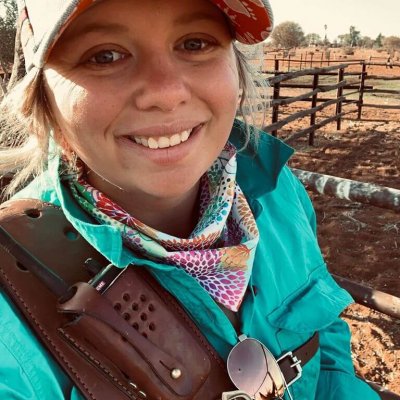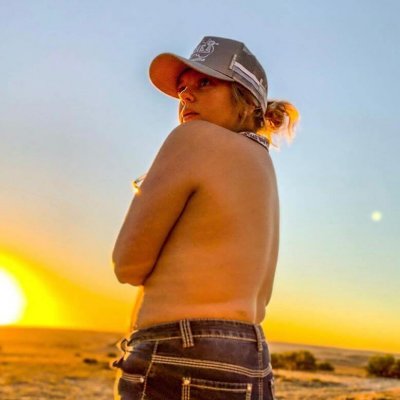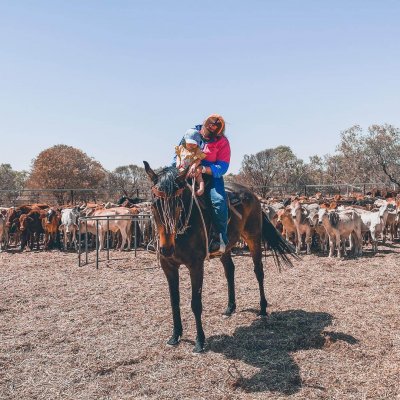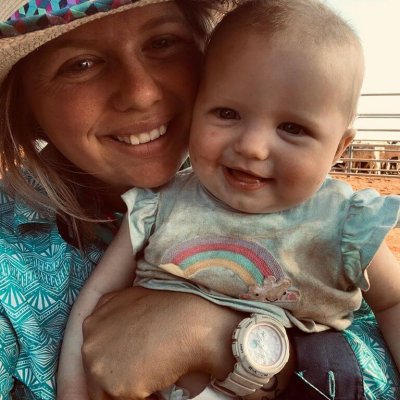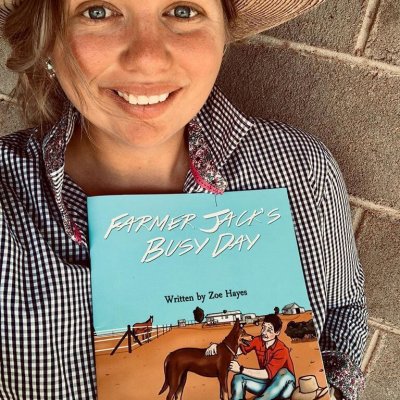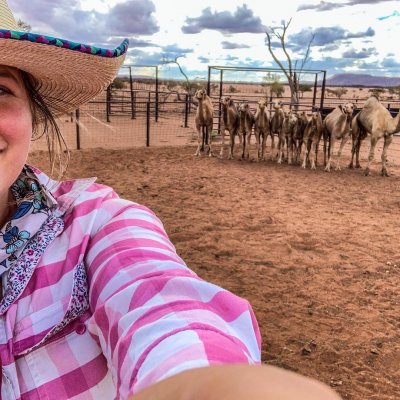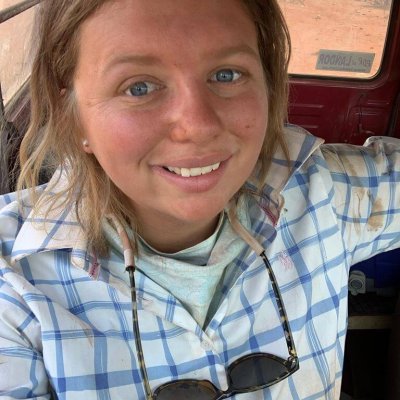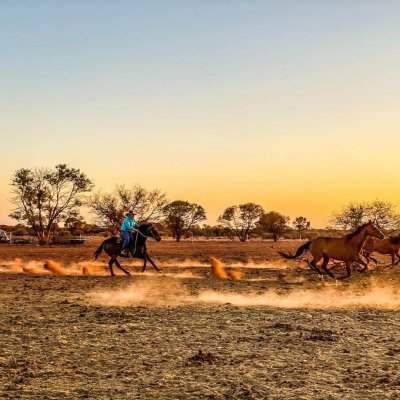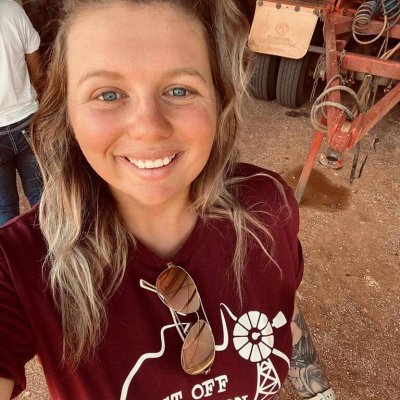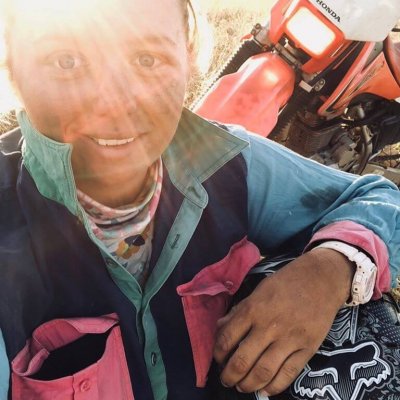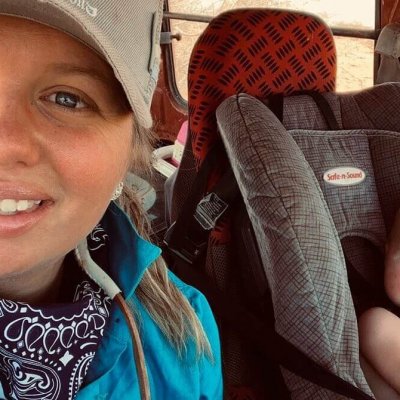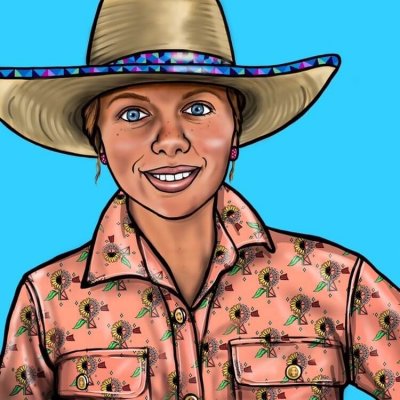At just 26, jillaroo, author and advocate Zoe Hayes is an inspiration to many rural Australians for her fearless dedication to breaking the stigma around mental health. She knows the struggle first hand after at the tender age of just 17, she lost her mum to suicide and began her own battle with depression. Born in the UK and growing up in Perth, Western Australia, it was her love of horses and show jumping that gave her a lifeline to a job as a jillaroo on a cattle station in north-west Queensland. There, she established Dust Off Depression – an online movement in support of rural men and women struggling with mental illness. Through her Instagram channels, she inspires over 14,000 followers with a raw and authentic look into rural life, and has also written a children’s book about surviving hardship and heartbreak. Up until recently, as well as being a tireless advocate for mental health awareness and suicide prevention, she’s juggled working on a remote cattle station in Meekatharra with being a mum to her baby daughter, a partner to her fiancé Brad and an expectant mother to their unborn baby boy. More recently, Zoe and her beautiful little family have embarked on a new chapter in Central Queensland.
When asked what concerned Zoe about the health, safety and wellbeing of those in rural industries and communities, she points to the unrelenting impact of isolation and loneliness on mental health, something she knows from first-hand experience. “Being so isolated in the bush left me feeling very depressed and alone,” she says, adding she worried for her own life. She sought professional help and urges anyone suffering to reach out to others and talk about it. “A problem shared is a problem halved,” she says. Over time, Zoe feels that rural industries and communities have got better at taking mental health more seriously, and she looks forward to facilitating online workshops to continue to spread a message of hope and to provide help to those who need it.
How would you describe yourself in three words?
Passionate, determined and a dreamer.
Tell us something interesting about yourself...
I was originally born in the UK. My parents moved to Perth, Western Australia, when I was just 10 months old. When I was five, I developed a love of horses that eventually gave me my connection to working in the rural industry, and I turned to that in 2013 shortly after my mum suicided.
I left school at a really young age and had a contract to ride professional show jumpers in England when I was just 16. However, after a nasty fall resulting in some serious injuries, I came home to Australia. Nine months later my mum passed away and the rest is history.
The agricultural industry saved my life and it’s now my passion to help others live a full and meaningful life.
What achievements are you most proud of?
Becoming a mum.
What makes you truly happy?
Being able to be a positive influence within the agricultural industry.
What do you love the most about being a rural woman?
Encouraging, supporting and rooting for other incredible women within our industry, and also being able to be a voice for women working in all areas of remote and rural Australia.
Tell us about a time when you felt worried about your own or someone else’s health, safety or wellbeing.
Being so isolated in the bush left me feeling very depressed and alone, and my anxiety skyrocketed. I feared not only for my own life but also for many others working within the agricultural industry, who I could see were struggling with the pressures and demands of the cattle industry.
What practical things did - or could - you or someone else do to prevent yourself or someone else from getting hurt?
I created Dust Off Depression, a safe place for people to express their feelings and openly discuss topics such as mental health. It directs people to helplines and encourages those struggling to seek professional help, and to just start talking about it. A problem shared is a problem halved.
In May 2020, Dust Off Depression partnered with Rural and Remote Mental Health to offer mental health and suicide prevention material. Over the following months mental health ‘passports’ went out with all Dust Off Depression orders and I have since hosted several free, online mental health workshops, with materials and resources supplied by Rural Minds. It means people can seek help and support without fear of the financial pressure.
Otherwise, my personal ‘pick me up’ guide to finding inner happiness includes the following tips:
- Find something to be grateful for each day, no matter how insignificant it may seem.
- Always have a dream or goal to work towards – one of my all-time favourite quotes “if your dreams don’t scare you, they’re not big enough!”
- Surround yourself with happy, radiant, exciting people – “your vibe attracts your tribe” you want people to inspire you, motivate and support you.
- Enjoy an 80/20 lifestyle – work, social life, eating habits, hobbies etc… life is all about balance. Enjoy your guilty pleasures now and then, don’t beat yourself up with guilt over them.
- Lastly, find something you love about yourself, something you truly love about you – whether it be something physical, emotional or intellectual. Whatever that quality is, love it, flaunt it.
"Find something you love about yourself, something you truly love about you - whether it be something physical, emotional or intellectual. Whatever that quality is, love it, flaunt it."
Zoe Hayes, Central Queensland AU Tweet this
Is there a time, place or scenario when your partner or those you work or spend time with are more willing to make changes to the way the work is done, or are more open to making safer, healthier choices?
I can certainly see a change in the industry as a whole taking mental health issues far more seriously.
It’d be great to get out and do some workshops on remote properties to really discuss these difficult topics.
If you could give any advice to another rural woman about health, safety and/or wellbeing in rural industries and communities, about influencing change in business - or just in general - what would it be?
Women are entitled to the same level of care and respect as men (and that’s also vice versa).
Is there anything else you'd like to share?
I’m extremely proud that, during my time as a single mother, I not only continued my work in regional Australia but have also written my own children’s book Farmer Jack’s Busy Day.
